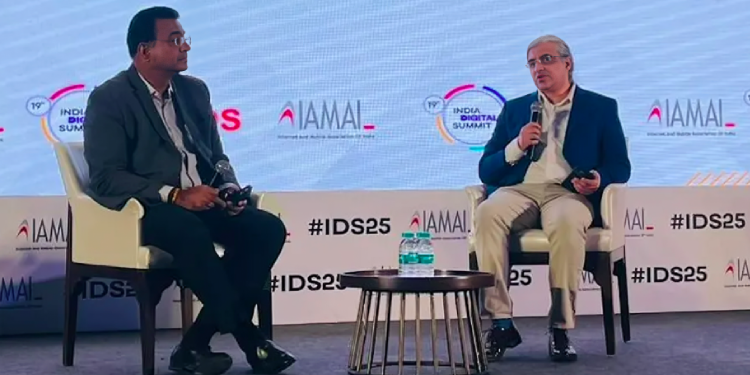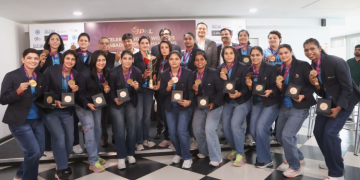At the India Digital Summit 2025, Partho Banerjee, Head of Sales and Marketing at Maruti Suzuki, presented the company’s pioneering vision, ‘eBorn,’ debuting with the eVitara SUV. The automobile leader’s approach centers on the fusion of functionality and purpose to redefine customer engagement in the EV market.
Banerjee, introduced by Vivek Malhotra, Group CMO & COO (Consumer Revenue & Enterprise Strategy) – India Today Group, as a marketer deeply rooted in customer-centricity, provided insights into the evolving dynamics of marketing in the 4.0 communication ecosystem.
The Shift to Purpose-Driven Functionality
Malhotra began the session by probing Banerjee’s perspective on the intersection of purpose and functionality in modern marketing. Banerjee emphasized the need to move beyond solely highlighting product functionality and to focus on how it aligns with a broader purpose.
He explained, “Functionality must serve a specific purpose. Take Instagram’s evolution—it began as a simple channel and grew by fostering diverse customer connections. Similarly, Nexa helped us engage younger audiences by introducing a new phase of experiences tied to the Nexa brand. While functionality is essential, a clear purpose enhances understanding and resonance with the audience. This is especially critical in India, where consumers are discerning and highly value utility.”
Purpose-Driven Marketing and Sustainability
The conversation delved into the rise of sustainability in brand messaging. Malhotra noted the challenge for brands to convey their values effectively, especially in a crowded marketplace. Banerjee shared an example from Maruti Suzuki’s CNG campaign.
“Initially, CNG cars were perceived as a compromise due to cost-focused narratives,” he noted. “But today’s young Indian customers are environmentally conscious and understand sustainability. Inspired by conversations with a Tesla customer who emphasized contributing to planetary health, we reframed CNG cars as part of a sustainability initiative. This approach encouraged customers to take pride in their choice rather than feel apologetic. Creating a community of environmentally conscious drivers fosters organic growth for the brand.”
Building an Ecosystem for eBorn
Banerjee introduced the rationale behind Maruti Suzuki’s ‘eBorn’ vision. The company’s strategy extends beyond launching electric vehicles to creating a comprehensive ecosystem for EV adoption.
“While EVs currently account for just 2.5% of total sales, we’re focusing on building an ecosystem that enables the widespread adoption of EVs. eBorn aims to create a community driven by a shared purpose, where every customer contributes to a collective goal. This sense of community differentiates us in the market and addresses the aspirations of our customers,” Banerjee explained.
Balancing Emotions and Functionality
In the closing segment, Malhotra discussed how younger generations like Gen Z and Gen Alpha prioritize functionality while being emotionally driven in their purchasing decisions. He raised the critical question: how can marketers balance emotions with functionality?
Banerjee responded, “Research shows that 51% of Indian consumers prioritize functionality, but it’s vital to link this functionality to a clear purpose. Effective communication addresses societal challenges and emphasizes the customer’s role within the brand’s ecosystem. Communities thrive not just on product utility but also on emotional connections and shared values. This alignment is the key to sustainable growth.”
The Road Ahead
Maruti Suzuki will showcase the production-ready eVitara SUV at the Bharat Mobility Global Expo 2025. Designed as a global model, the eVitara is part of Suzuki Motor Corporation’s vision of “Make in India for the World,” unveiled in Milan, Italy.

















